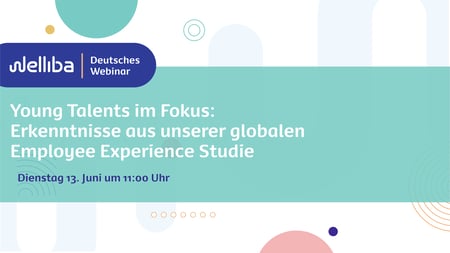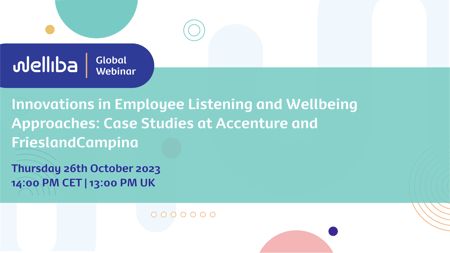A New External Focus Can Significantly Improve Costly Employee Experience Programs
In a world where employee feedback is key to organisational success, traditional surveys are often relied upon to gather insights. However, these methods have increasingly resulted in "survey fatigue". A recent Forbes article highlighted that while many employees eagerly provide feedback, leaders often struggle to act on it due to stress and competing priorities. As a result, employees often perceive surveys as ineffective when they feel their input does not lead to meaningful changes.
According to the article, 95% of HR leaders have increased or maintained their listening efforts, yet only 27% believe these programs lead to meaningful business results. But leaders aren’t ignoring feedback: they are just overwhelmed. This lack of perceived actionable outcomes fosters disengagement and ironically further decreases employees’ experiences at work. The internal focus on employee surveys has reached its limits.
Stagnation: Too Much Data, Not Enough Focus
When employees get disappointed by the lack of perceived interest and change initiatives from HR, managers and leaders, the quality and reliability of their feedback diminishes. Leaders and HR find themselves steering their organisations without valuable insights from the large amounts of low-quality data generated by their listening strategy. A strictly internal listening perspective, based on employee surveys, can even create blind spots, where critical challenges go unnoticed and innovative opportunities remain untapped.
New Insights from Existing External Data: Two Case Studies
Today, it is possible to shift the focus from internal surveys to external data. By harnessing the power of AI, publicly available information - such as employee review platforms and media mentions - can be analysed to deliver actionable recommendations. This approach not only alleviates survey fatigue but also helps leaders gain a fresh, external perspective on their organization’s performance.
Case 1: Arvesta Replaces an Employee Engagement Survey Cycle to Gain New External Perspectives
Arvesta is an international agricultural company that had achieved very high engagement scores (around 90 percent) during three consecutive employee engagement cycles. To understand what this meant in their industry and against specific players, they decided to pause one planned survey cycle. Instead, Arvesta partnered with Welliba to leverage Welliba’s external data insight solution: EXcelerate. By tapping into publicly available data - including industry benchmarks and workforce sentiment trends – EXcelerate’s insights revealed that Arvesta already scored above the industry but could implement additional measures to reach best-in-class scores. Arvesta received clear recommendations on how to leverage competitive advantages against a similar European player.
The data analysis highlighted three key boosters that support the firm’s strong engagement scores. It also flagged three areas seen as ‘blockers’ to a better employee experience that Arvesta can further explore in future employee listening initiatives and to sharpen its employee value proposition. By replacing one survey cycle with an external scan, Arvesta saved over 400 hours of employee time and 40 percent of the cost to compared to 2,300 employees each completing a 10-minutes engagement survey. This saving does not account for the time HR teams spent following up and analysing results. The full case study details how EXcelerate's insights helped refine their strategy.
Case 2: The new IST Chief People Officer Quickly Gathers Insights to Focus People Initiatives and Investments
IDEMIA Secure Transactions (IST) is a French technology company. Its new Chief People Officer wanted to gain a deeper understanding of IST against its competitors to quickly understand IST’s strengths and opportunities and sharpen the focus of people initiatives and its Employee Value Proposition. Welliba’s external analysis showed that IST’s overall Employee Experience score was already well above the industry average, but that some parts of the content strategy around EVP communications needed revaluation. Most of the current communications focused on the technical expertise of solutions, while the many benefits offered to employees were less visible. EXcelerate provided practical recommendations to leverage the new findings. The full case study explains how IST leveraged these insights to sharpen its Employee Value Proposition.
Analysing External Data Complements Employee Listening
Shifting to external data doesn't mean abandoning employee listening: it complements it. External perspectives reveal insights that internal surveys often miss, allowing leaders to identify not only internal challenges but also external opportunities. The result? A more balanced, informed approach to shaping workplace culture and strategy. By leveraging AI to deliver external data-driven insights, leaders can address pressing issues, reduce the number of surveys and redefine their listening programs with a sharper focus.
Embracing AI Solutions to Create More Effective Employee Experience Programs
Organisations need to embrace the opportunities offered by analysing external Employee Experience data with AI. Welliba's EXcelerate solution is a powerful first step in this transformation, allowing leaders to quickly identify and understand the key issues their organisation face. But the journey doesn't end there. Once the primary challenges have been pinpointed using EXcelerate, Welliba’s EX-management platform EX+ provides the tools to implement a targeted, comprehensive employee listening strategy.
EX+ integrates Employee Experience surveys, instant feedback, real-time analysis, and personalised advice into one seamless platform, delivering actionable insights that let employees, HR professionals, and organisational leaders work together. With EXcelerate and EX+ at the heart of employee listening programs, organisations can redefine employee experience programs, address critical gaps, and foster a culture of engagement and innovation.
Employees deserve to know that their feedback is a valuable resource that is leveraged to create working environments in which they can thrive, not just data that is underused by costly but ineffective Employee experience-programs that fail to deliver the necessary insights.








